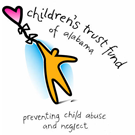Public Safety Alert: Children and teenagers targeted in financial sextortion schemes
The FBI, Homeland Security Investigations, and the National Center for Missing and Exploited Children (NCMEC), all partners of the National Children’s Advocacy Center (NCAC), say financial sextortion involving children and teenagers is at an all-time high. Nationally, law enforcement has identified at least 3,000 victims in the past year.
Financial sextortion most often happens online, through a social media site, gaming site, or video chat. Most often, these criminals target boys between the ages of 14 and 17, but children as young as ten could be at risk. The predators use a fake account posing as a teenage girl or woman to get young men to send sexually explicit images or videos.
Huntsville Police Investigator Tony Shivers is part of the Internet Crimes Against Children (ICAC) Task Force. He works directly with NCMEC to identify victims and perpetrators when child sexual abuse material is found online. He says this is happening in every community. “If you think this isn’t happening here, you’re 100% wrong. We see this every single day,” says Shivers, “Parents have got to pay attention to what their children are doing online.”
In addition to knowing what your child is doing online, parents need to talk to children and teenagers about what to watch for when gaming or online. “Your child needs to know if someone seems too good to be true, they probably are,” says NCAC Community Education Program Manager and Therapist Beth Jackson. She says to talk openly with your child but not to threaten to take away devices or other privileges, “You don’t want your child afraid to come to you with a problem.”
NCAC Intervention and Clinical Director Erica Hochberger says children often have a harder time reporting sextortion than physical sexual abuse. “They are embarrassed and feel ashamed. They think they should have known better,” says Hochberger, “We need to make it clear that if this happens to a child – they are not at fault.”
Hochberger adds it is also crucial for parents to remember the child is never at fault in cases of sextortion or any other form of abuse.
NCMEC says parents should take the following steps if their child is a victim of sextortion:
- Remember, the predator is to blame, not your child or you.
- Get help before deciding whether to pay money or otherwise comply with the predator. Cooperating or paying rarely stops the blackmail and continued harassment.
- Report the predator’s account via the platform’s safety feature.
- Block the predator and do not delete the profile or messages because that can be helpful to law enforcement in identifying and stopping them.
- Let NCMEC help get explicit images of you off the internet.
- Visit missingkids.org/IsYourExplicitContentOutThere to learn how to notify companies yourself or visit org to report to us for help with the process.
- Ask for help. This can be a very complex problem and may require help from other adults or law enforcement.
- If a child doesn’t feel supported, they can reach out to directly to NCMEC for support at gethelp@ncmec.org or call NCMEC at 1-800-THE-LOST.
- Take a moment to learn how sextortion works and how to talk to your children about it. Information, resources, and conversation guides are available at gov/sextortion.
Visit the FBI’s webpage dedicated to preventing and responding to sextortion to learn more about how you can keep the children and teenagers in your life safe.










